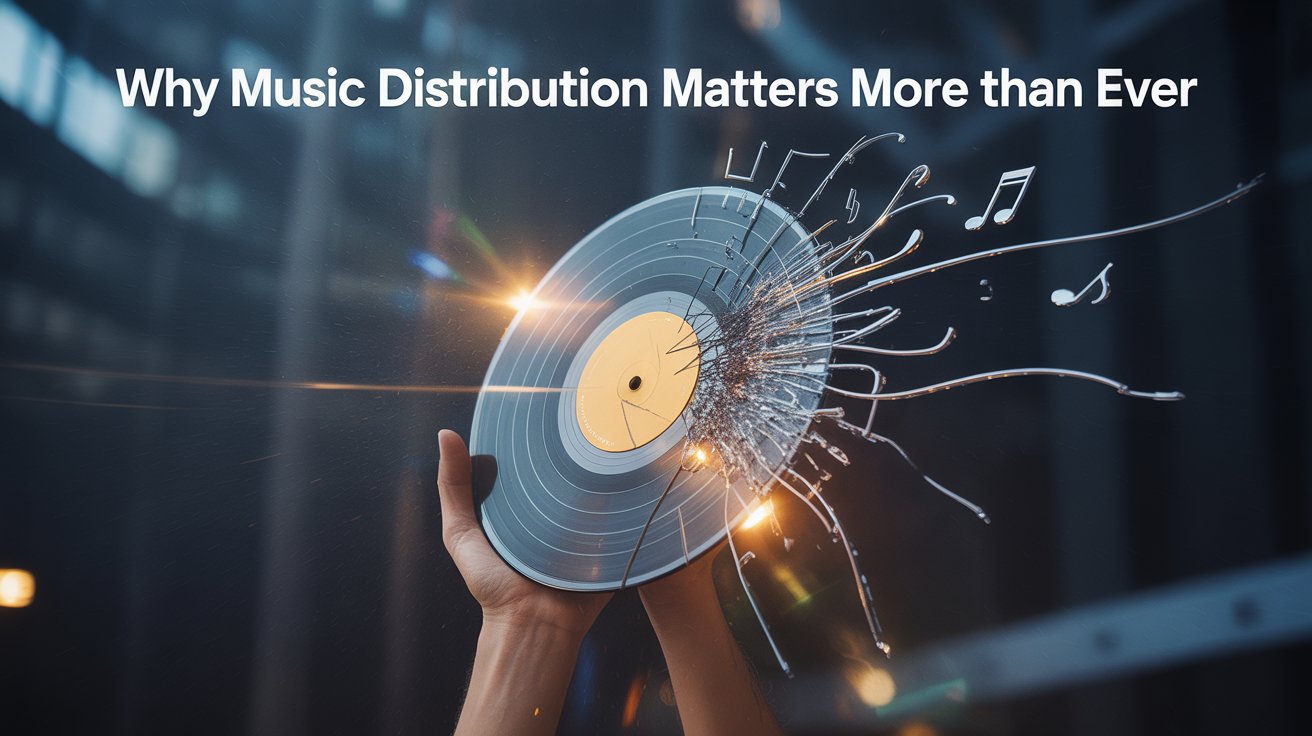Why Music Distribution Matters More Than Ever

In today’s digitally driven music economy, music distribution is no longer just a backend process — it’s the heart of how artists survive, thrive, and scale. Whether you're an emerging bedroom creator or a professional indie act, the method you use to get your music into stores and streaming platforms can make or break your career. With thousands of tracks uploaded daily, your ability to get noticed, generate income, and stay in control comes down to one thing: distribution strategy.
→ What Is Music Distribution Really?
At its core, music distribution is the process of getting your music into Digital Service Providers (DSPs) like Spotify, Apple Music, Amazon Music, YouTube Music, JioSaavn, and more. But modern distribution is far more complex than that.
- It determines where and how your music is available
- It impacts who collects your royalties and how fast
- It defines your copyright ownership
- It plays a role in your eligibility for charting, playlisting, and sync licensing
→ Why Music Distribution Actually Matters
| Factor | Impact |
|---|---|
| Rise of Indie Artists | More creators are skipping labels and distributing themselves |
| Streaming-Dominant Market | 90%+ of music revenue now comes from digital platforms |
| Short Attention Spans | Wide platform presence is critical to discovery |
| Royalty Transparency | Artists want full control and instant access to analytics & payouts |
→ The Power of Strategic Music Distribution
Choosing a distributor isn’t just about who gets your track live the fastest. A smart distribution partner can:
- Get your music on global and regional platforms
- Secure playlist placements via DSP relationships
- Provide ISRC codes, UPCs, and metadata optimization
- Offer direct royalty dashboards and analytics
- Enable you to monetize on platforms like Instagram, YouTube, and Facebook
→ How Bad Music Distribution Can Damage Your Career?
Poorly chosen or scammy distribution can:
- Delay your music going live on stores
- Result in lost royalties or incorrect attributions
- Trap you in unfair contracts with rights transfer
- Give you zero control over takedowns or updates
✅ Elements of a Strong Music Distribution Strategy
- Ownership First: Pick a distributor that lets you retain 100% rights
- Speed + Support: Fast delivery with human customer support
- Transparent Reporting: Clear breakdown of earnings, streams, and region-wise impact
- Royalty Collection: Global publishing, YouTube Content ID, sync licensing access
🔍 What to Ask Before Choosing a Music Distributor?
- Are they listed on Spotify’s verified distributor list?
- Do they charge a flat fee or commission per release?
- Can you easily update or remove tracks?
- Do they have publishing or sync options?
- Is customer service responsive on platforms like Twitter or Instagram?
✅ Best Music Distribution Platforms
- DistroKid — Fast and artist-friendly
- TuneCore — Transparent and publishing enabled
- CD Baby — One-time fee, sync/publishing support
- Ditto Music — Global reach and label tools
- Distribution Blueprint — Indian startup focused on education + transparency
🌍 Music Distribution Is Your Identity
Your distributor isn’t just a tool — it's your music passport. It determines who hears your story, how you're paid, and what rights you retain. In the digital-first music world, you need more than a good track — you need the right path to get it heard.
🔗 Useful Resources
Music distribution isn’t an afterthought anymore — it’s the core of your career strategy. By choosing wisely, understanding the tools, and treating distribution as a business decision, you protect your music, income, and brand legacy. In today and beyond, music distribution isn’t optional — it’s mission critical.
Today’s music ecosystem is dominated by digital platforms, and if your music isn’t distributed properly, you’re practically invisible to the global audience. It's not just about uploading songs — it’s about metadata accuracy, royalties tracking, regional targeting, and long-term catalog control. The artist who understands distribution holds the steering wheel of their career.
Choosing the right distribution partner means more than revenue splits — it affects playlist reach, content ID protection, sync opportunities, and backend analytics. Without a clear strategy, artists risk being underpaid, misrepresented, or even losing rights unknowingly.
Treat distribution as seriously as production. You can spend months crafting a masterpiece, but if it’s released through an unreliable or outdated distributor, its impact is lost. Distribution is how your story travels, how your legacy is archived, and how your earnings scale with time.
Whether you’re an independent artist or a growing label, understanding modern distribution is non-negotiable. In the next 5 years, those who take distribution seriously will lead the charts, while others will wonder why no one heard them. Your music deserves reach, protection, and power — that begins with smarter distribution.